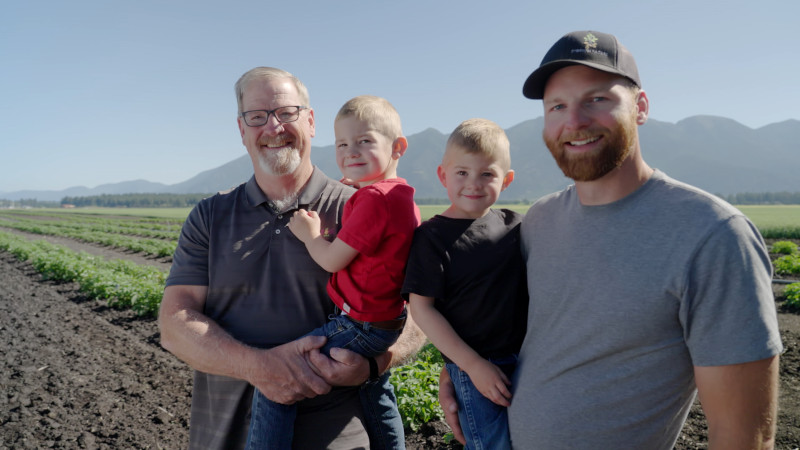Disclaimer: You are navigating to a website maintained by a third party and are about to leave the Potatoes USA website. The external link should not be considered an endorsement by Potatoes USA of the third-party website or the company or organization that owns it, and Potatoes USA is not responsible for the accuracy or nature of the content of the linked website.
Streich Farms Is at the Beginning of the Potato Supply Chain in Big Sky Country

Steve Streich said he got a “clean slate” over 10 years ago when he moved his family farm across the valley in Kalispell, Montana—away from urban encroachment and onto new land with new storage facilities and “excellent soil.”
Steve is a second-generation farmer. His father started growing seed potatoes in North Dakota shortly after World War II and then moved the family to Big Sky Country in the 1970s. Steve took over the family farm from his dad after college.
“Northwestern Montana is pretty geographically isolated from other potato production and a lot of pests,” Steve said. “We have hard winters … all things important in a good seed-growing area. We’re proud of our soil here. The glaciers left really nice soil for a few miles through this strip. No rocks, just beautiful black dirt.”
He added that Streich Farms is at “the beginning of the potato supply chain” because it grows seed potatoes that are sold to commercial growers. Most of them end up as fries.
“You have to start with a quality seed to grow a high-quality crop of commercial potatoes, so I feel like we’re a very important part of the industry,” Steve said.
Streich Farms uses rotation crops like canola to keep its soil and seed potatoes as healthy as possible.
“With potatoes, crop rotation is very important,” Steve said. “We can only grow potatoes about one out of every three years. This allows the soil a chance to recharge and replenish itself so we can grow the healthiest, best high-quality potatoes that we can.”
Streich Farms has a three-acre “nuclear field,” which is the source of all the seed potatoes they grow.
“We’re a foundation farm, so we grow our own potatoes. We don’t buy any potatoes to plant. All the seeds we plant come from this field,” Steve said. “They’re planted very far apart, and we harvest them one at a time. We individually bag all the tubers, so they retain their unique identity. These are called mother plants.”
Certification agents from Montana State University regularly test the nuclear field for viruses, allowing Streich Farms to adjust their crops if needed.
Asked what advice he would give prospective potato farmers, Steve said, “It requires kind of a perfectionist personality because the details really do matter when you’re growing seed, and you can’t skip anything. You have to be able deal with some adversity and figure out how to get through it.”
Steve’s partner on the farm is his son Paul, who has two young sons of his own.
“Probably the greatest blessing is to have them nearby,” Steve said. “I get to see Paul and work with him, and my grandkids are available any time I want to see them.”
Steve said he hopes he and Paul will pass on their farm and knowledge to his grandchildren.
“We hope things go our way and we can keep enough land in this valley to farm and that it doesn’t all get developed,” he said. “We’ve got a couple more little ones coming up. If I had my druthers, I would like to see it become a legacy farm and continue on for a few more generations.”
When they’re not farming, Steve said he and his family host family dinners where they entertain and play games.
“Family time is the best,” he said.
